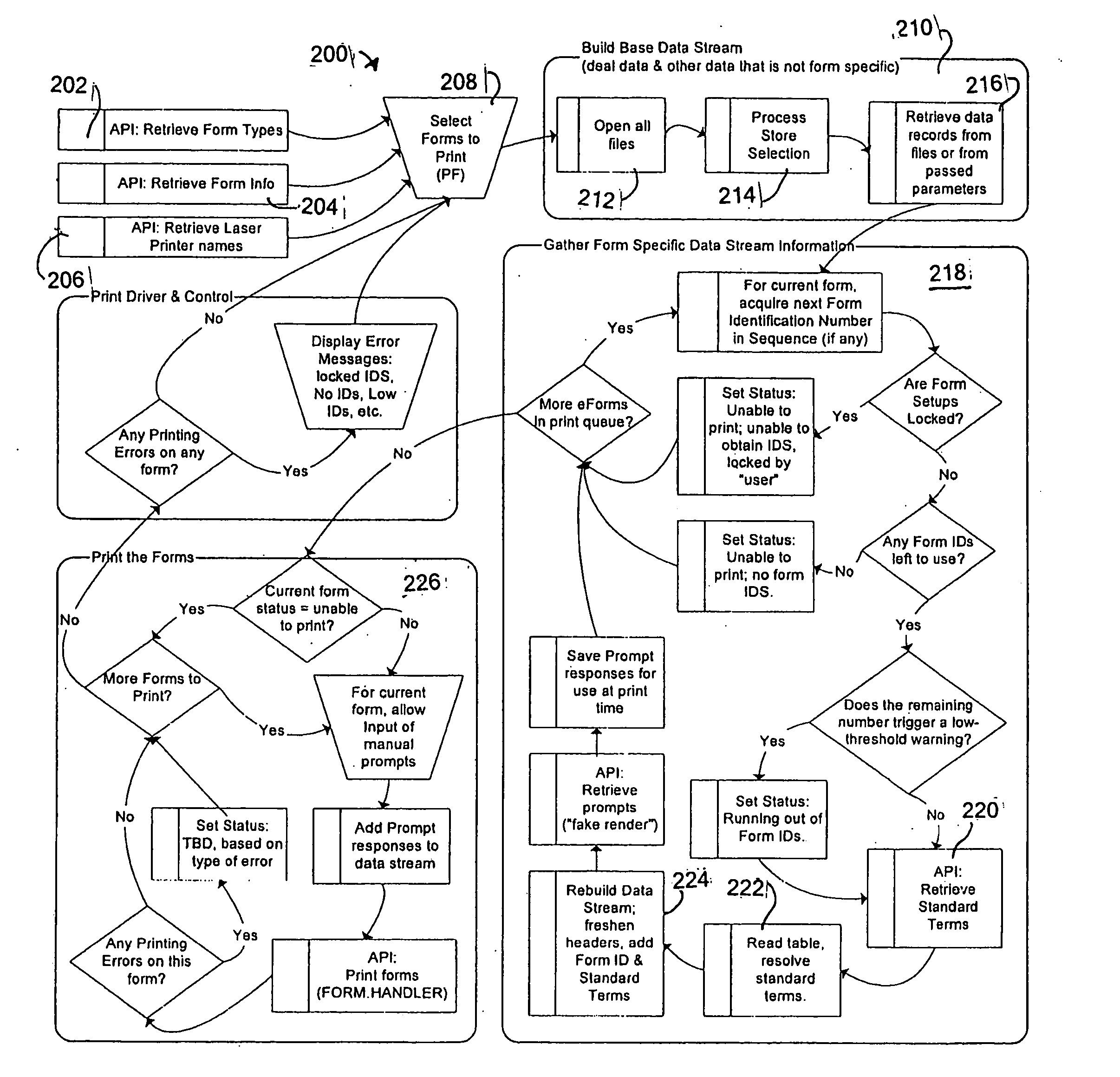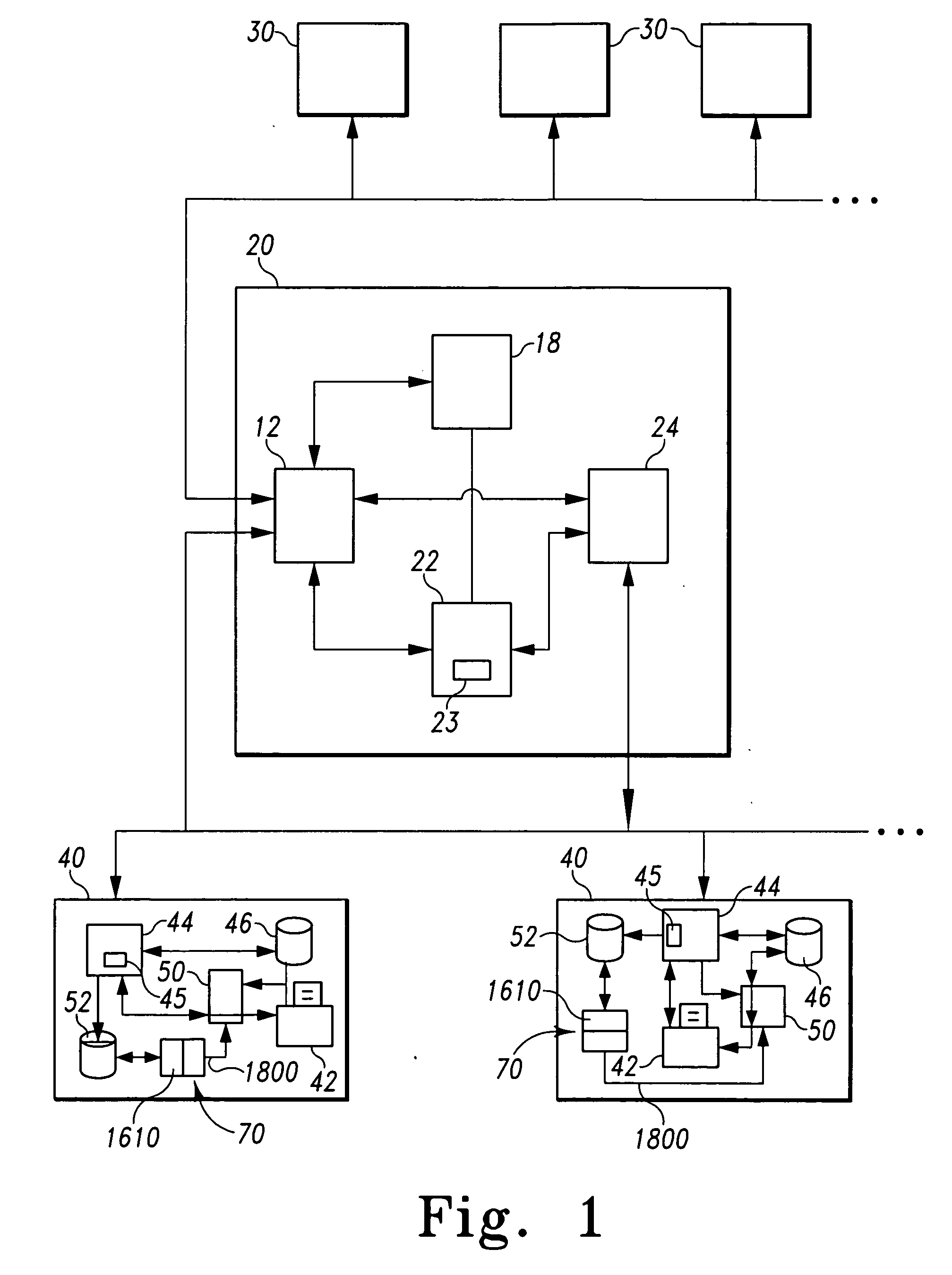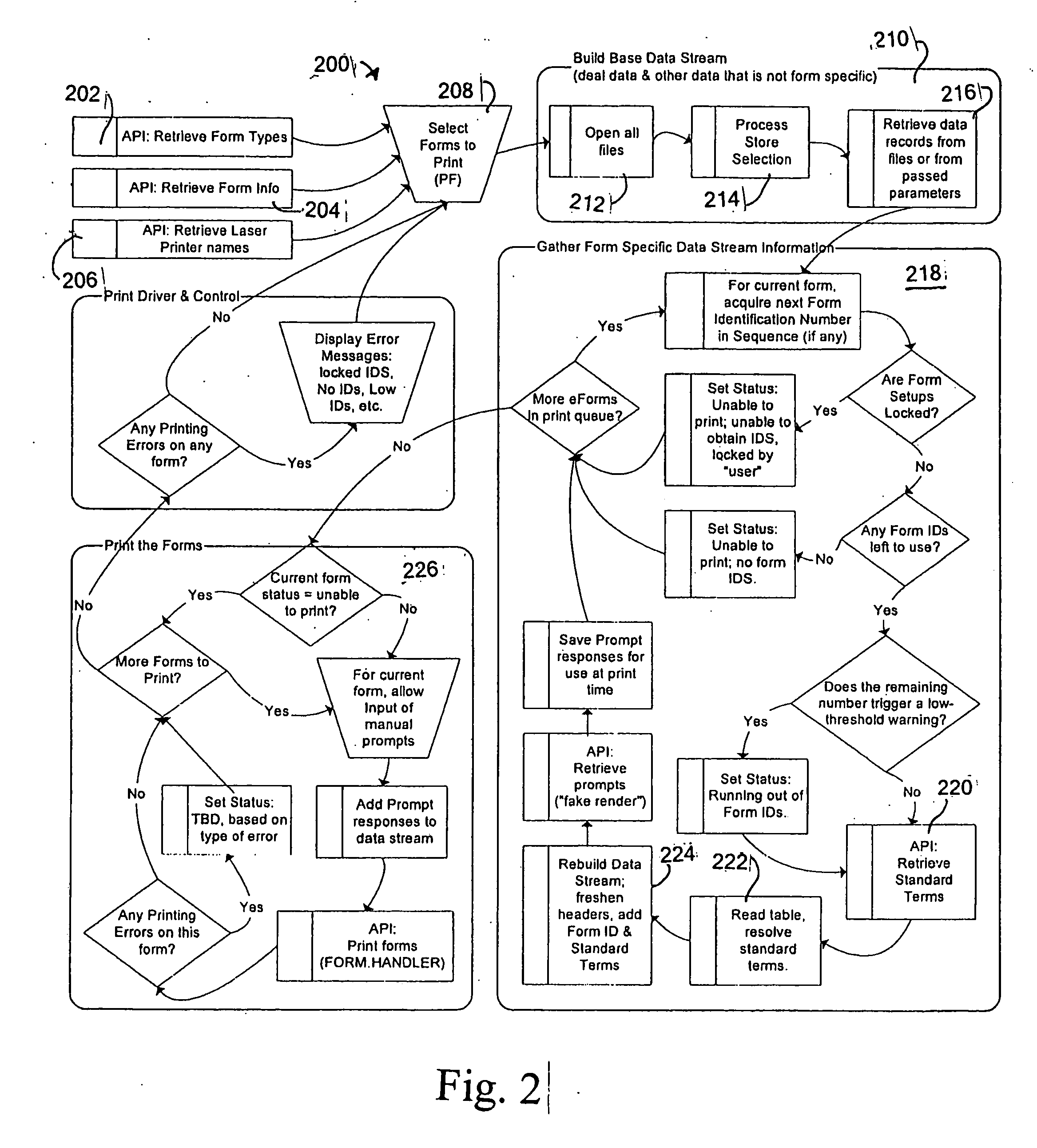System and method for electronic document generation and delivery
a technology of electronic documents and electronic forms, applied in the field of electronic documents, can solve the problems of inability to determine what constitutes “current”, difficulty in ascertaining what constitutes “current”, and incorrect paper forms inserted by dealers, so as to reduce sales revenue and increase the cost of forms delivery
- Summary
- Abstract
- Description
- Claims
- Application Information
AI Technical Summary
Benefits of technology
Problems solved by technology
Method used
Image
Examples
Embodiment Construction
[0042] For the purposes of promoting an understanding of the principles of the disclosure, reference will now be made to the embodiments illustrated in the drawings and described in the following written specification. It is understood that no limitation to the scope of the disclosure is thereby intended. It is further understood that the present invention includes any alterations and modifications to the illustrated embodiments and includes further applications of the principles of the disclosure as would normally occur to one skilled in the art to which this invention pertains.
[0043] Referring to FIG. 1, the disclosed system 10 for generating and providing electronic documents includes a base functions server or sub-system 20, a plurality of forms supplier or provider sub-systems 30 and a plurality of forms user sub-systems 40. Each of the forms provider sub-systems 30 is associated with a person or entity that provides forms for use by form users. While each of the illustrated p...
PUM
 Login to View More
Login to View More Abstract
Description
Claims
Application Information
 Login to View More
Login to View More - R&D
- Intellectual Property
- Life Sciences
- Materials
- Tech Scout
- Unparalleled Data Quality
- Higher Quality Content
- 60% Fewer Hallucinations
Browse by: Latest US Patents, China's latest patents, Technical Efficacy Thesaurus, Application Domain, Technology Topic, Popular Technical Reports.
© 2025 PatSnap. All rights reserved.Legal|Privacy policy|Modern Slavery Act Transparency Statement|Sitemap|About US| Contact US: help@patsnap.com



